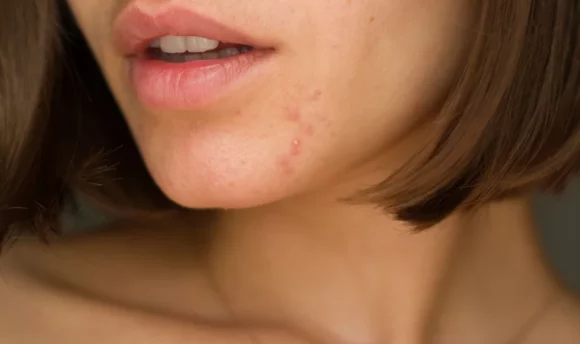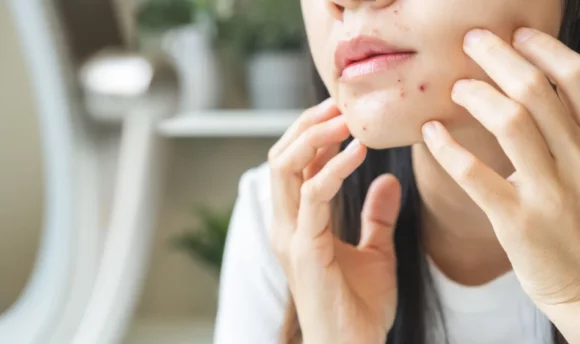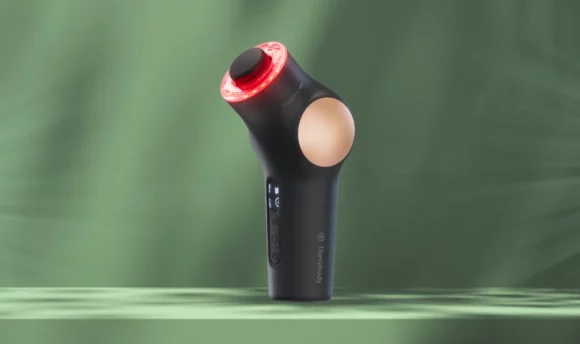How to Cope With Rapid Aging After Hysterectomy
Any treatment that affects the reproductive system can have an impact on hormone levels, including a hysterectomy. Whether you’re worried about the effects of this procedure or simply want to know more, discover 3 ways that will help you slow down this premature aging process.

After having a hysterectomy, it can be concerning when you begin to notice changes in your skin, hair, and mood. This may leave your self-esteem and confidence levels at an all-time low.
Although it’s completely normal for aging to occur after this procedure, there are some ways that you can manage the symptoms, from treatments to lifestyle changes.
Keep reading to find out why rapid aging is linked with hysterectomy, how it can affect women, and what you can do to keep living a healthy, happy life.
Rapid Aging After Hysterectomy: What’s the Link?
Although the procedure itself doesn’t lead to the process of rapid aging, a hysterectomy that involves removing the ovaries, known as an oophorectomy, will trigger immediate surgical menopause.
This is because it reduces your body’s production of estrogen and progesterone, the female reproductive hormones, which means that the bodily functions they control, such as ovulation, can no longer be performed.
Hysterectomies can therefore have a negative impact on your brain function, heart, and even your mental health.
Studies show that the younger patients are when they have a hysterectomy, the more likely conditions connected to rapid aging are likely to develop, including dementia, cardiovascular conditions, arthritis, and osteoporosis.
What Is a Hysterectomy?
A hysterectomy is a surgical procedure where the uterus is removed, along with sometimes the ovaries, fallopian tubes, cervix, or portions of the vagina, depending on the type of procedure you have.
With 1 in 3 women predicted to undergo a hysterectomy by the age of 60, this is one of the most common surgeries performed to save lives in some cases.
For example, a hysterectomy may be essential when a woman is diagnosed with cervical, uterus, or ovarian cancer or when there is heavy bleeding from the uterus after an accident.
The procedure can also be conducted to reduce pain and improve the quality of life for women with endometriosis, a condition that causes irregular periods and infertility.
However, you may also have a voluntary hysterectomy as a precautionary measure to reduce your risk of developing certain diseases. This is the case particularly for women who have a family history of cancer, repeated pelvic inflammatory disease, or chronic pelvic pain.
Types of hysterectomy
Depending on your condition, there are three main procedures that your surgeon may recommend, which are:
- Partial hysterectomy – This is a less common procedure that leaves your vagina, cervix, fallopian tubes, and ovaries in place while removing only the uterus. Those who have this type do not go through surgical menopause afterward.
- Total hysterectomy – In this more invasive procedure, the whole cervix and uterus are removed. As the ovaries are kept in place, you won’t undergo menopause post-surgery.
- Radical hysterectomy – Leaving the ovaries in place increases your risk of ovarian cancer, so in this procedure, they are therefore removed along with the cervix, uterus, and upper portion of the vaginal canal. This means that you will go through early menopause immediately after the surgery is complete.
How Does Hysterectomy Affect Aging?
Removing any part of the reproductive system can trigger rapid aging, which may cause a range of physical and mental changes. Read on to find out what they are and why these changes may occur.
#1 Premature menopause
When the ovaries are removed during an oophorectomy, or radical hysterectomy, it means that you are no longer able to produce estrogen.
This is the hormone that regulates the menstrual cycle, meaning that you won’t ovulate, your periods will stop, and you will lose your ability to get pregnant. Known as menopause, this can cause symptoms such as hot flashes, chills, sleep problems, and mood changes.
It’s important to note that even if only the uterus is removed and the ovaries are kept intact, some women experience ovarian failure anyway. This generally happens within 5 years of the hysterectomy, leading to surgical menopause if they haven’t already gone through this process.
#2 Decreased bone density
Losing bone density is a natural part of the aging process, which is more commonly experienced by women. However, it has been found that women undergoing a hysterectomy are prone to lower bone density from a younger age post-procedure.
Those with this condition have more brittle bones, which puts them at a higher risk of developing weak bone conditions such as osteoporosis and, therefore, suffering from fractures.
#3 Increased risk of heart disease
Along with age-related issues, lower estrogen levels may also have a significant impact on cardiovascular health.
A 2018 study concluded that women who underwent a hysterectomy or oophorectomy were at higher risk of developing a range of cardiovascular and metabolic conditions, including heart failure and disease, hypertension, and coronary artery disease.
The risk was found to be even greater in women under the age of 35.
#4 Skin aging
During the natural aging process, which is accelerated after a hysterectomy, our body’s production of collagen and elastin slows down. These are both proteins that maintain the skin’s resilience, with collagen providing structure and elastin helping your skin to stretch.
This can cause the skin to lose its firmness while also leading to fine lines and wrinkles.
#5 Other changes related to low estrogen
As well as impacting the menstrual cycle, having low estrogen levels also affects your sex drive. This means that you’re likely to experience a loss of libido after undergoing the procedure, as well as vaginal dryness and sometimes pain during sex.
Research also shows that women who have had a hysterectomy are more prone to suffering from cognitive decline or dementia, which is associated with estrogen deficiency.
How to Slow Down Aging After Hysterectomy
Luckily, there are a variety of ways that you can control the post-hysterectomy aging process. This involves partially restoring your estrogen levels and includes the following actions:
#1 Hormone replacement therapy
Hormone replacement therapy (HRT) is one of the most popular and efficient treatments for reducing menopause symptoms after a hysterectomy, including night sweats, mood swings, and hot flashes.
This works by taking hormones as a substitute for the estrogen and progesterone that are usually produced by the ovaries. The treatment, therefore, helps the body adjust slowly to the loss of estrogen, so the symptoms listed above aren’t so sudden or severe.
#2 Physical activities
Staying active is particularly important after undergoing a hysterectomy, as surgical menopause can trigger weight gain.
It may also leave your bones and joints more fragile, so try incorporating low-impact exercise such as regular walking, pilates, lightweight training, and even dancing into your weekly routine to strengthen these areas.
Plus, studies show that regular exercise helps to reduce insomnia, which is a common problem suffered by those going through menopause.
#3 Healthy diet
Another way of managing your weight, feeling more energized, and keeping your heart healthy after a hysterectomy is by consuming a balanced diet.
Maintain a good level of nutrition by eating plenty of colorful fruits and vegetables, which are packed full of antioxidants that fight disease. Increase your fiber intake through beans and wholegrains that boost your gut health while helping to nurture a healthy heart.
Choose healthy omega-3 fat sources such as mackerel, along with lean protein sources like chicken breast. Add high-calcium foods into your diet for good bone health, including canned salmon, broccoli, orange juice, and yogurt.
Alcohol can cause anxiety and depression, so try to limit your intake where possible too.
FAQs
Many women experience changes in their body appearance after a hysterectomy, including weight gain, aging skin, and thinning hair.
Treatments such as hormone replacement therapy can be beneficial if you’re hoping to offset the symptoms of rapid aging after a hysterectomy. Making small lifestyle changes also helps, including staying physically active and eating a balanced diet.
Although excessive facial hair growth occurs in conditions such as polycystic ovarian syndrome (PCOD), you are unlikely to experience this symptom after a hysterectomy.
A Word From an MD
Having a hysterectomy where the ovaries are removed means that the body produces less estrogen and progesterone. This can trigger changes related to rapid aging, including menopause, declining skin and hair health, weak bones, insomnia, and depression.
One of the things that you can do to help cope with these changes is to implement a regular skincare routine to maintain a youthful appearance. Use products containing hyaluronic acid, which hydrates and plumps the skin, and peptides, which help the skin to appear firmer.
Other lifestyle changes that you should make include keeping hydrated by drinking plenty of water, taking regular walks to strengthen your bones and joints, and eating a balanced diet to manage any weight changes.
If you are about to have a hysterectomy, it’s important to speak with your doctor or surgeon to prepare for any risks, along with learning what to do during your recovery period after the procedure.
They can also advise you on the best treatments for dealing with the symptoms of rapid aging, including hormone replacement therapy. Some women may be advised to have HRT for a short period, whereas others may need to remain on it until they reach the natural menopause age.
Conclusion
A hysterectomy can cause several age-related problems in the body, including poor skin health, increased risk of heart disease, and weaker bones.
If your ovaries are removed too, the sudden drop in estrogen levels can speed up the aging process, as this leads to immediate menopause post-surgery.
To cope with these changes, speak to your doctor about getting hormone replacement therapy while making healthy lifestyle changes such as exercising more and eating a balanced diet.

















































 Select your language:
Select your language: 








